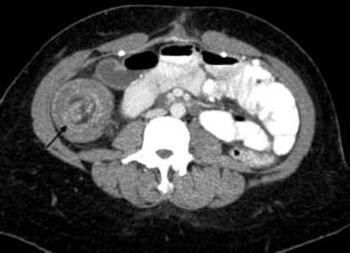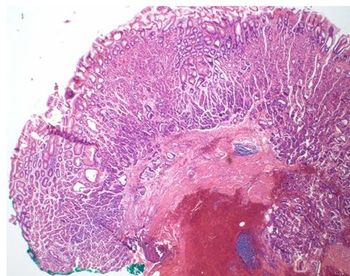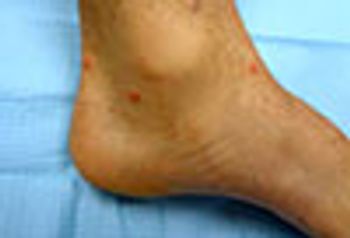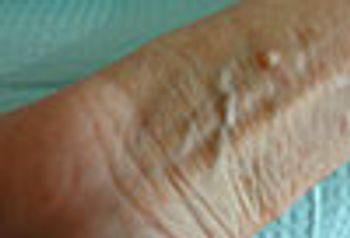
Patients may be intimidated by their gastroenterologists, so it’ll probably fall on primary care to field them.

Patients may be intimidated by their gastroenterologists, so it’ll probably fall on primary care to field them.

The Affordable Care Act comes none too soon for some of these patients.

And most have received treatments aimed at modifying immune system responses to control their disease.

The patient specifically reports difficulty swallowing at the level of the sternal notch. An upper endoscopy 10 years ago found no abnormality. Which of these tests makes sense now?

A young woman with a history of a desmoid tumor as a child undergoes a screening colonoscopy. What gene mutation is suggested by the finding of multiple adenomatous polyps?

A classic sign helps determine the diagnosis. Do you recognize it?

What to delete and what to keep, that is the IBS dietary question.


Many treatments have failed but evidence is accumulating in support of a newcomer. Do you know which one it is?

A 72-year-old woman presents to the ED with fatigue, weakness, and palpitations. Her potassium level is 6.1 mEq/L, with a serum creatinine level of 1.9 mg/dL. What is the problem?

Food intolerance, food allergy, gluten-sensitivity, celiac disease-IBS may resemble any of these. Differentiating the conditions requires systematic inquiry.

Adult intussusception is a rare entity, accounting only for 1% to 5% of cases of bowel obstruction.

Opportunities to obtain the latest scientific knowledge and institute scientifically sound therapy to maintain the highest quality of patient care abound at the meeting.

Has this teen been abused? Cast your votes and see if you’ve answered this and the 4 other questions in this week’s quiz correctly.

A 50-year-old woman who has average risk for developing colorectal cancer undergoes a routine screening colonoscopy. Results are normal. She inquires about which medication she can take to reduce the risk of developing colon cancer. Based on the US Preventive Service Task Force, which of the following should be recommended?

Fundic gland polyps are the most common form of gastric polyps. Giant FGPs, however, are extremely rare.

Multiple itchy red bumps on a man’s ankles; relative contraindications to lumbar puncture; stroke in an addict. . . 5 more questions for you to test the breadth of your clinical knowledge.

A 55-year-old man is admitted to the ICU with an upper GI bleed. Urgent endoscopy demonstrates a duodenal ulcer with recent stigmata of bleeding. He reports using NSAIDs occasionally for back pain and he takes a daily PPI for heartburn. Which of the following would be the recommended method to check for Helicobacter pylori?

The GERD symptom of regurgitaton does not typically respond to acid suppressants.

Persistent GERD symptoms such as regurgitation may indicate poor response to PPI therapy.

Which of these GI and skin lesions should you worry about most? Is rhabdomyolysis usually the result of infection? See how well you do with this week’s questions. . .

The gram negative bacterium is a potential cause of dyspeptic symptoms, gastric/duodenal ulcers, and has been linked to gastric cancer.

Is H pylori a WHO class I carcinogen?

A new regulation provides a uniform standard definition to help patients who have celiac disease, up to 3 million Americans.

A 38-year-old woman presents with her third upper GI bleed secondary to duodenal ulcers in 3 years. Biopsies have been negative for Helicobacter pylori. She complains of diarrhea and an unintentional 5-lb weight loss. What test next?